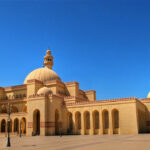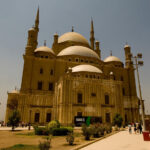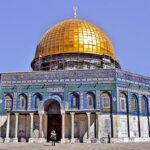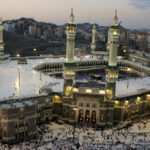Government of Abu Bakr.
As Caliph, Abu Bakr was the Head of the Government of the Islamic State. Abu Bakr held Government to be a sacred trust, and he ran Government as if he were administering the affairs of a trust. To Abu Bakr, the office of the Caliph was not a means of earthly glory; he regarded it as a burden that he had to discharge in the interest of Islam.
About the nature of his office, and his responsibilities he declared in unequivocal terms: “O ye men, now do I long that some one else may take the burden of the State on his shoulders. If you expect from me that I should come up to the standard set by the Holy Prophet, then you must know that I cannot fulfil your expectations because he was immune from all sins and had the assistance of divine revelations while I am an ordinary man subject to human fallibility.”
Character of Polity.
Abu Bakr took pains to impress upon the people that he was only the first among the equals. For him, all men, rich or poor, high or low were equal. His rule was the rule of the law, but the law that he had to administer was not man made law: it was divine law. There is no priesthood in Islam, and as such the caliphate was not a theocracy. As all power lay with the people, the political order was democratic in character, but the democracy was not like the democracy we know today. In the polity that Abu Bakr administered the will of the people was paramount, but it was subject to divine will. As such the polity was neither theocracy nor democracy in the sense in which the West understands these terms. It was democracy under the umbrella of divinity, the vicegerency of the people organized to carry into effect the will of God as embodied in Islam.
Constitutional ruler.
Abu Bakr was a constitutional ruler as his rule was subject to constitution. But the constitution in this case was not man made; it was divine. As a ruler; Abu Bakr had to discharge a three-fold responsibility.
Hewas responsible to God, and it was his responsibility to enforce the commandments of God as contained in the Holy Quran. He was responsible to the Holy Prophet, and it was his endeavor to follow in the footsteps of the Holy Prophet, and prove himself to be a true representative of the Holy Prophet. In this respect he had to seek guidance from the Sunnah. He was also responsible to the people. It was his endeavor to ensure that all that he did commanded the approval of the people. As Caliph, Abu Bakr was the Head of the State as well as the Government.
As representative of the Holy Prophet he was also the religious head. He wielded power, but the polity was organized in such a way that power did not lead to corruption; it served as an instrument of service. As Caliph, Abu Bakr was more of a father to the people than as the ruler.
Advisory Council.
The Caliph was aided by an Advisory Council. It comprised all companions. There was, however, nothing hard and fast about the Advisory Council. Its constitution, its conduct of business were all informal. All decisions were arrived at through the process of consensus.
There was no monopoly about the Advisory Council. Even an ordinary Muslim could express his views and render advice. It was open to the Caliph to accept or not to accept the advice offered to him, but whenever Abu Bakr did not accept the advice tendered to him, he advanced reason therefore.
Secretariat.
The Government of Abu Bakr carried correspondence. Ali, Usman, and Zaid b Thabit acted as Secretaries. There was, however, no elaborate Secretariat. No remuneration was paid to the Secretaries. There were no palatial buildings to house the Government offices. All Government business was conducted in the main mosque at Madina. There were no elaborate departments for the conduct of Government business.
There was however division of functions among the Companions, and each Companion was responsible for specified functions. Umar acted as a Minister to the Caliph, and was in charge of judicial administration. Abu Ubaida Jarrah was in charge of the financial administration.
Caliphal duties.
As Caliph, Abu Bakr did not live in any palace. He lived in an ordinary house as a commoner. He was accessible to every person. If any person had any grievance, he could place it before the Caliph without any difficulty or formality.
Abu Bakr always took prompt steps to redress the grievances of the people. Abu Bakr personally led the prayers. He reviewed the problems every week in the Friday Khutba and took the people in confidence in formulating his policies.
Local administration.
For the purpose of local administration, the country was divided into provinces each under a Governor. Arabia proper was divided into ten provinces, namely, Madina, Makkah, Taif, San’a, Hadramawt, Khaulan, Zubaid, Jund, Bahrain, and Najran.
Iraq was divided into three provinces, namely: Hirah, Dumatul Jandal, and Muzainah. Syria was divided into four provinces: Hims, Damascus, Jordan and Palestine. The Governor was required to lead prayers. He superintended the army; collected taxes; administered justice; maintained law and order; supervised public morals; and provided social services. He was aided by an Amil who collected revenues, and a Qadi who administered justice. Subject to the payment of ‘Jizya’, the minorities enjoyed cultural autonomy and managed their affairs themselves.
Visits: 1



















